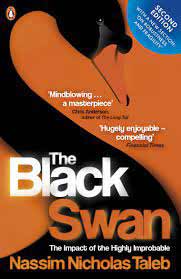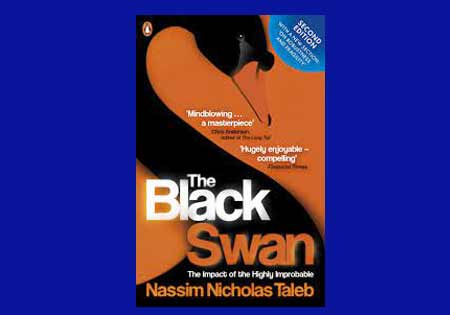
The author pours a bucket of cold water and tells us to wake up to the many things we don’t know we don’t know, and therefore beyond our control. Being aware of this fact allows us to exercise caution in our forecasts, take such events into account in our risk and business strategy, but at the same time stay nimble and resilient in the face of change.
Taleb describes Black Swans as extremely unpredictable events that have massive impacts on human society. Interestingly, such events compel human beings to explain why they happened—to show, after the fact, that they were indeed predictable.
I share below a couple of his insightful and even amusing hypotheses which also allowed me to reflect on how this applies in the maritime context:
Forecasts and analysis
“Why don't we talk about our record in predicting? Why don't we see how we (almost) always miss the big events?... You cannot use one single measure for randomness called standard deviation (and call it "risk"); you cannot expect a simple answer to characterize uncertainty.”
Many forecasts by ‘experts’ are no better than predictions by the average person. Often this is because humans come up with an arbitrary number or reason, and anchor their narrative around that, thereby missing the effect of randomness. Experts further tunnel into their subject matter, often incorrectly basing their predictive models exclusively on past events.
To understand uncertainty we must understand the level of knowledge applied to decisions about the future. If we base decisions solely on intuition, we are pushing risks more towards uncertainty, as there is no quantifiable information to assist with decision making. I will share my own experience here: When the Covid-19 pandemic started, I had a gut feeling that container ship rates would drop because reduced incomes would mean lesser demand for finished goods (I often theorize and test them, even if it's not related to what I do at work). But I did not foresee a shortage of truckers in the United States, neither the congestion in China, nor the giant Ever Given blocking the Suez Canal for weeks which created a restriction in supply, and therefore pushed container ship rates to an all-time dizzying high. (I was partly right- container ship rates did slide significantly for the first six months after the WHO declared the pandemic). There is a ‘butterfly’ effect, i.e. random events which may appear disconnected on a superficial level, play a role in a particular outcome. Many shipping companies are aware of black swan effects and changed their market strategies immediately to take advantage of the change in shipping markets.
Tongue-in-cheek, Taleb comments that we often take credit when things go right but blame it on ‘unforeseen events’ when they go wrong.
Similarly, maritime accidents sometimes occur most unexpectedly, sometimes with some severe consequences. The Titanic was ‘unsinkable’. Despite several regulatory and technological advances, exactly 100 years later, the Costa Concordia sank off the Italian coast. Often, accident investigations assume that a reasonable person could have foreseen the chain of causation leading up to the accident, and therefore preventable. This can also be explained in Taleb’s words “We behave as if the Black Swan does not exist; human nature is not programmed for Black Swans.” But often, like in the case of the Deepwater Horizon, there are no villains.
Silent heroes
"Silent evidence" is the information not readily apparent for whatever reason. Taleb gives an illustrative maritime example from the ancient history of a philosopher being presented with an argument that a group of sailors survived a shipwreck because they prayed. The philosopher wonders how many of the sailors who drowned were also praying. The drowned sailors, you see, are the silent evidence. The hard thing about silent evidence is that it's almost never available at all and we rarely recognize that we're not seeing it.
In the same token, Taleb introduces the concept of the ‘silent hero’, the person who acts proactively and creates systems and tools, and through daily interventions, prevents bad things from happening but is hardly recognised. It’s often the one who makes the sale, an emergency responder, or the visible person of the organisation who makes a speech who is rewarded. Our seafarers are silent heroes who keep world trade running. In line with Taleb's recommendation, we need to reward them fairly.
Some sections of the book wander off on a tangent, into a rabbit hole; I just skipped those parts. Some people do tend to get distracted by his scathing criticism of economists and statisticians, but like all things, I take only what's good from anything. Neither does Taleb does not offer many elegant solutions but one has also to look at other works by the author such as Anti-Fragile. Here, I refer to Frank Knight’s 1921 work on Risk, Uncertainty and Profit where he says, ‘with action regarding future events it simply comes down to opinion, … neither entire ignorance nor complete and perfect information, but partial knowledge.” We indeed have to work with the best predictive models and collective knowledge that we have but Taleb reminds us to be aware that our knowledge is partial, and we need to be cognizant of this.
The book is a must-read and one that needs to be re-read.
Full disclosure: I don't get paid to post reviews, so you can be assured that this is my candid opinion, and how I see the contents of the book apply to my world.


